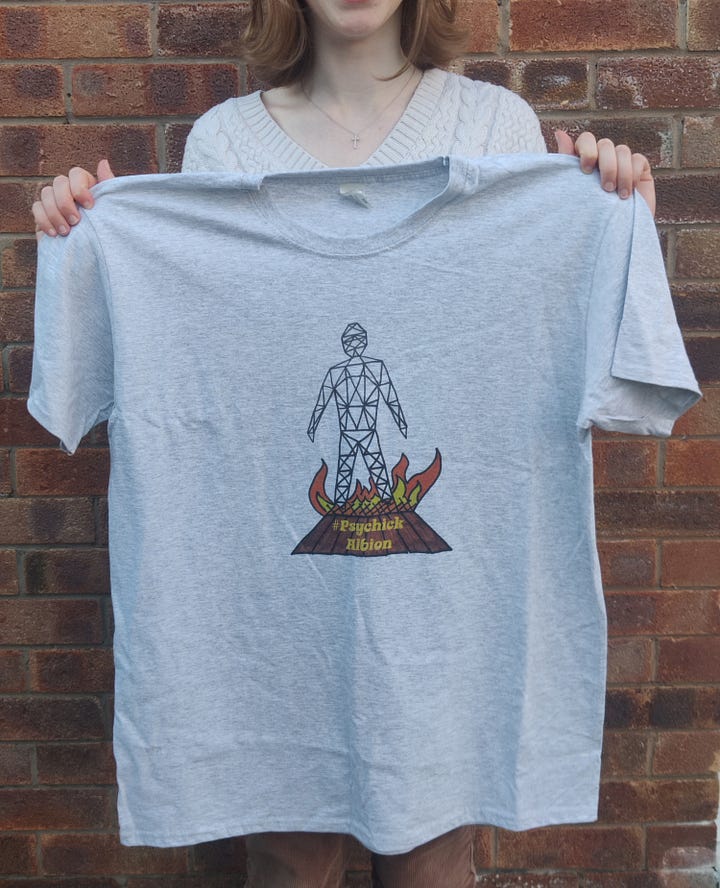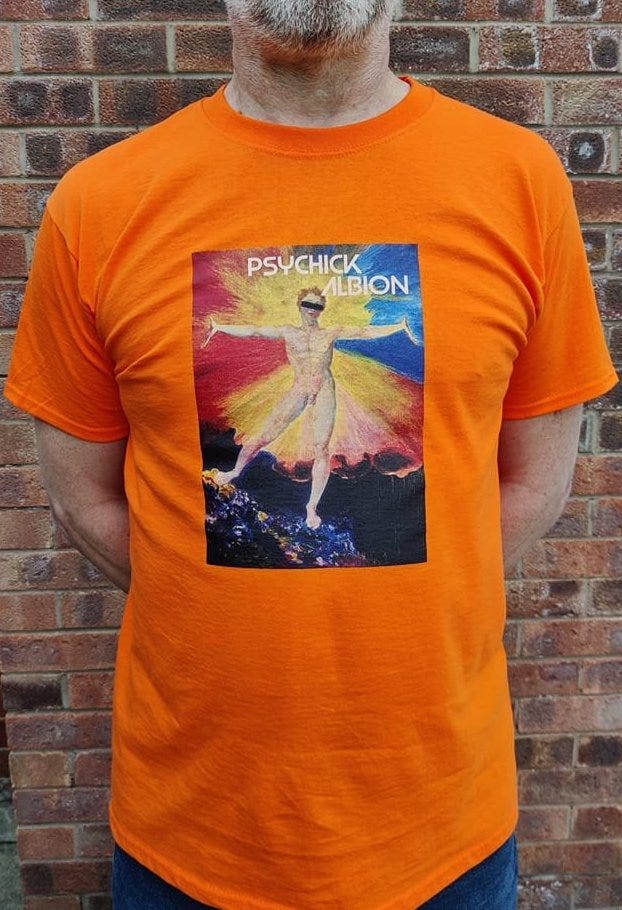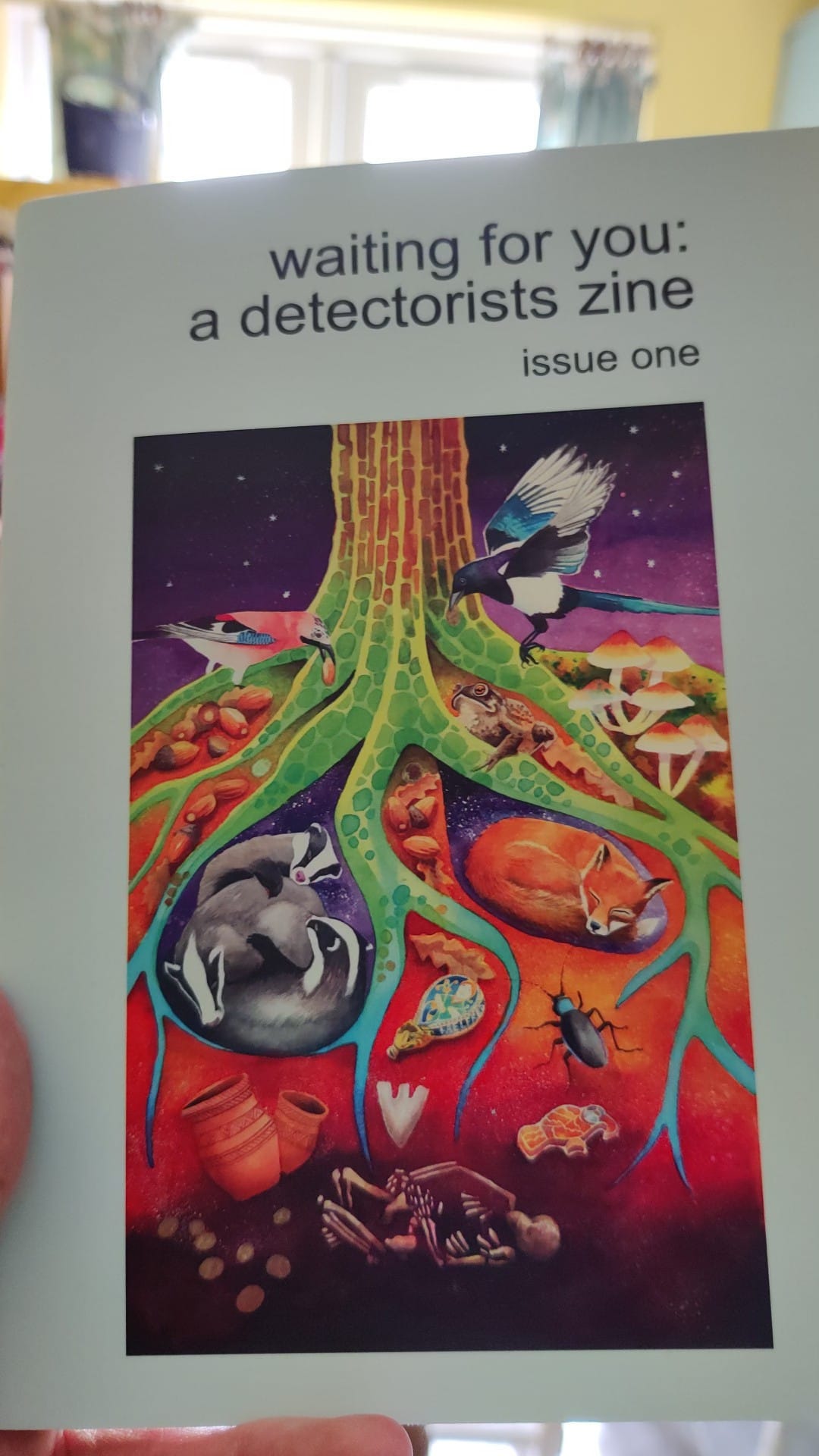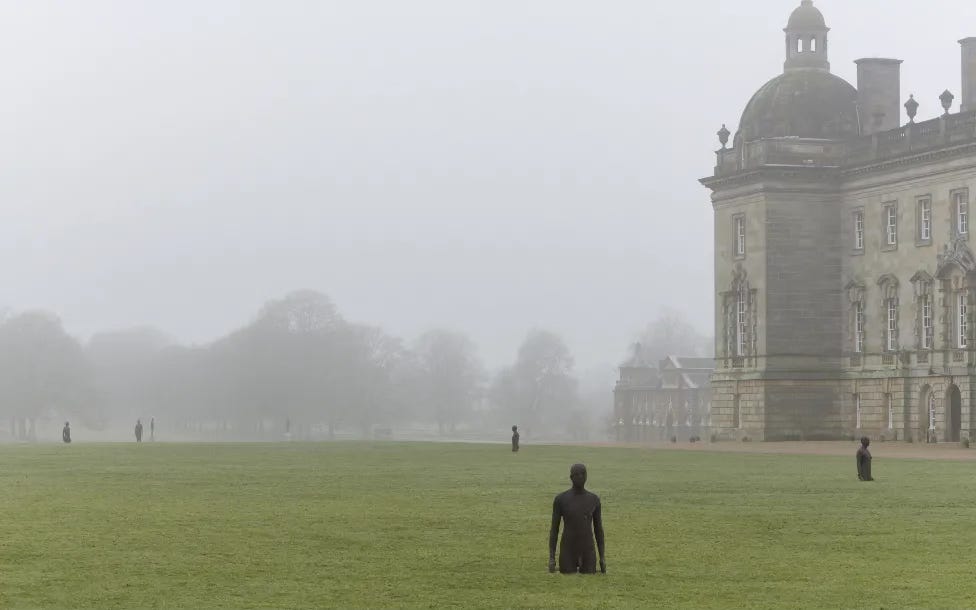Temporal Boundary Newsletter
13th April 2024
Hello and welcome to this week’s newsletter wherein we indulge in a little housekeeping of low stock items.
Detectorists issue 1 low on stock
I’m running out of copies of the first issue of Waiting for You: A Detectorists Zine issue 1. At the last count there were eight copies left. These were from the second printing and there won’t be a third so, if you need it in your collection, act fast.
T-shirts low on stock


I’m also down to the last shirt in each of these designs. The last Pylon Man and the last Psychick Albion are each available in L. There won’t be any further runs of these designs unless I’m inundated with renewed requests/demands/threats.
A Descent into Philistinism
Two interviews caught my eye this week, each with a grand old man of British arts, and each pointing to the vital importance of Britain’s cultural life and its ongoing managed decline. Bruce Robinson, writer and director of the immortal Withnail and I, was interviewed in the Telegraph ahead of a stage adaptation of Withnail at Birmingham Rep. He says of the Rep, which has just had its funding cut by 100%:
It’s a fabulous theatre, and they’re getting absolutely nothing. We have to ask ourselves, as English people, what would you rather have? A guy pouring shit into our rivers for a million quid?
Meanwhile, Antony Gormley, celebrated creator of the Angel of the North, was interviewed on the opening of a new exhibition at Houghton Hall, Norfolk. He reflected on the importance of arts education:
There has been something like a 40 per cent reduction in people wanting to study art history or archaeology or art at secondary level. If we are not renewing the sources of creativity – be it singing, playing an instrument, dancing, it doesn’t matter what – how can we bring new forms into the world? We are all going to become slaves of AI; managers of late capitalism. We wouldn’t have got The Beatles without Liverpool College of Art.
This may seem like little more than the perennial whining of middle class lefties and, in fact, there’s probably something dubious about Gormley’s setting his exhibition of everyman sculptures in the grounds of the home of the Marquess and Marchioness of Cholmondeley. (Incidentally, the Marchioness, Rose Hanbury, was recently the focus of much gossip about the reasons for Kate Middleton’s ongoing absence from public life; a salacious point, perhaps, but it points to the persistent Upstairs Downstairs nature of public life.) But even a stopped clock gives the right time twice a day and there is a new urgency to the situation. There is a good case to be made that in the wake of the loss of all of Britain’s previous sources of power (industrial, military and political) there is nothing left in which we still have an edge over similarly sized competitors except for our cultural output. Now, this isn’t to make the case for retaining a sense of cultural supremacy, but it is my belief that these small islands do have many unique forms of cultural expression that can often be global in their impact. From the Anglo Saxon poets, through Chaucer, to The Fall there has always been a unique and delicate balance between the parochial and the cosmopolitan that has provided a constant source of renewal to the language, and a sense of immediacy and profound accessibility to our culture. Shakespeare, the most English of all our writers, invented and imported words, and introduced scenes of distant lands to audiences who would never be able to visit them.
It might seem as though the cultural decline is a natural consequence of our more general decline but this misses the point made earlier: would you rather your money was spent on nurturing the next eccentric genius or on the man who floods the rivers with shit? The Journal of Psychick Albion is dedicated to a radical praxis of cultural exploration but radical culture has often emerged from state institutions. The current government believes that culture should be reduced to consumption, that you should get what you pay for and nothing more. In this model there is no room for the long process of nurturing talent and of allowing it to cross fertilise with unexpected influences. Nor is there a place for art that strives to be challenging to be shared with a large audience, as was routine in earlier decades. In other words there is no room for our uniquely universal culture, at once here, and dreaming of elsewhere. Albion’s culture will always be contested, as can be seen in the usage of William Blake at the Last Night of the Proms, or Shakespeare as tourist trap. It is our task to demonstrate that the radicalism of Blake is not an aberration that can be smoothed into acceptability; it is the real heart of Albion.
That’s all for this week…




Totally agree. And while I'm here, I have to say Undefined Boundary 2(2) is fantastic – not finished it quite, but it's a corker.